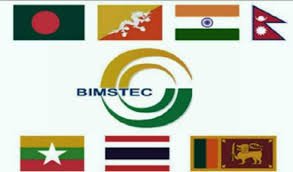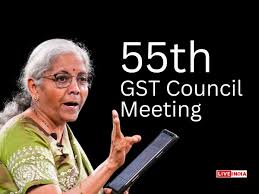India Surpasses China as Top Importer of Russian Oil
Introduction
In a significant shift in global energy trade dynamics, India has recently overtaken China to become the largest importer of Russian oil. This change marks a pivotal moment in the global oil market, reflecting India’s growing energy needs and the evolving geopolitical landscape.
The Surge in Indian Oil Imports
India’s oil imports from Russia have surged dramatically over the past year. This increase is attributed to several factors, including discounted prices offered by Russia and India’s strategic need to secure stable and affordable energy supplies. The ongoing geopolitical tensions and Western sanctions on Russia have also played a role, making Russian oil an attractive option for countries like India.
Impact on India’s Energy Security
This development has significant implications for India’s energy security. As the world’s third-largest oil consumer, India relies heavily on imports to meet its energy demands. By diversifying its oil sources and increasing imports from Russia, India is reducing its dependence on traditional suppliers like the Middle East. This strategy not only ensures a steady supply of oil but also helps India mitigate the risks associated with geopolitical uncertainties.
Geopolitical Implications
India’s shift towards Russian oil has not gone unnoticed on the global stage. It signals India’s intent to maintain a balanced foreign policy, engaging with multiple global powers while securing its national interests. This move also reflects the changing dynamics of the global oil market, where emerging economies like India are playing a more prominent role.
Economic Benefits for India
The economic benefits of importing discounted Russian oil are substantial. Lower oil prices help India manage its trade deficit, control inflation, and support economic growth. Additionally, this strategic move allows India to allocate more resources towards other critical areas, such as infrastructure development and social welfare programs.
Environmental Considerations
While the increase in oil imports is driven by economic and strategic factors, it also raises questions about India’s commitment to reducing carbon emissions and transitioning to cleaner energy sources. Balancing the immediate need for energy security with long-term sustainability goals will be a challenge for India in the years to come.

Why This News is Important
Global Energy Market Dynamics
This news is crucial as it highlights a significant shift in the global energy market. India’s emergence as the top importer of Russian oil underscores the changing dynamics of global energy trade and the growing influence of emerging economies like India. This shift could have long-term implications for global energy security and pricing.
India’s Energy Security Strategy
The development is also important from the perspective of India’s energy security strategy. By diversifying its oil sources, India is taking proactive steps to ensure a stable and affordable energy supply. This is particularly vital for a country that relies heavily on energy imports to fuel its growing economy.
Geopolitical Ramifications
This news carries significant geopolitical ramifications. India’s increasing engagement with Russia through oil imports could influence its relationships with other global powers, particularly the United States and countries in the Middle East. It also reflects India’s broader foreign policy strategy of maintaining a balance between different global powers.
Economic Impact on India
From an economic standpoint, this news is important because it highlights the benefits India gains from importing discounted Russian oil. Lower energy costs can help India manage its trade deficit, control inflation, and support economic growth, all of which are crucial for a developing country with a large population.
Environmental and Sustainability Considerations
Lastly, this news is important as it raises questions about India’s environmental and sustainability commitments. As India increases its oil imports, it will need to balance its energy security needs with its long-term goals of reducing carbon emissions and transitioning to renewable energy sources.
Historical Context: India’s Oil Import Strategy
Background
India has historically relied on Middle Eastern countries for the majority of its oil imports. However, in recent years, India has been diversifying its oil sources to reduce dependence on any single region and to take advantage of global market fluctuations. The relationship between India and Russia in the energy sector has deepened, particularly in the wake of Western sanctions on Russia, which have led to discounted Russian oil being available on the global market.
Evolution of Energy Ties with Russia
India and Russia have a long history of energy cooperation, dating back to the Soviet era. However, the relationship has evolved significantly in the 21st century, with Russia becoming a key supplier of oil and gas to India. This cooperation has been strengthened by India’s participation in various energy projects in Russia, including the Sakhalin oil and gas fields.
Recent Developments
The recent increase in India’s imports of Russian oil is a continuation of this trend. It also reflects India’s pragmatic approach to foreign policy, where economic and strategic interests are prioritized. The ongoing conflict in Ukraine and the subsequent Western sanctions on Russia have created opportunities for India to secure discounted oil, further deepening the energy ties between the two countries.
Key Takeaways from “India Surpasses China as Top Importer of Russian Oil”
| S. No. | Key Takeaway |
|---|---|
| 1. | India has overtaken China to become the largest importer of Russian oil. |
| 2. | The surge in imports is driven by discounted prices and India’s strategic energy needs. |
| 3. | This development enhances India’s energy security by diversifying its oil sources. |
| 4. | The move has significant geopolitical implications for India’s foreign relations. |
| 5. | India’s increased reliance on oil imports raises questions about its environmental sustainability goals. |
Important FAQs for Students from this News
1. Why has India become the largest importer of Russian oil?
India has become the largest importer of Russian oil due to discounted prices offered by Russia, strategic energy needs, and the geopolitical situation that has made Russian oil more accessible and attractive to India.
2. How does India’s increase in Russian oil imports impact its energy security?
The increase in Russian oil imports strengthens India’s energy security by diversifying its oil sources, reducing dependence on traditional suppliers, and ensuring a stable and affordable energy supply.
3. What are the geopolitical implications of India surpassing China as the top importer of Russian oil?
This development signals India’s balanced foreign policy, maintaining relations with multiple global powers while securing its national interests. It could also influence India’s relationships with other countries, including the United States and Middle Eastern nations.
4. What economic benefits does India gain from importing Russian oil?
Importing discounted Russian oil helps India manage its trade deficit, control inflation, and support economic growth by lowering energy costs, freeing up resources for other critical areas.
5. How does this shift align with India’s environmental sustainability goals?
While the increase in oil imports meets India’s immediate energy needs, it raises concerns about the country’s commitment to reducing carbon emissions and transitioning to renewable energy sources in the long term.
Some Important Current Affairs Links















